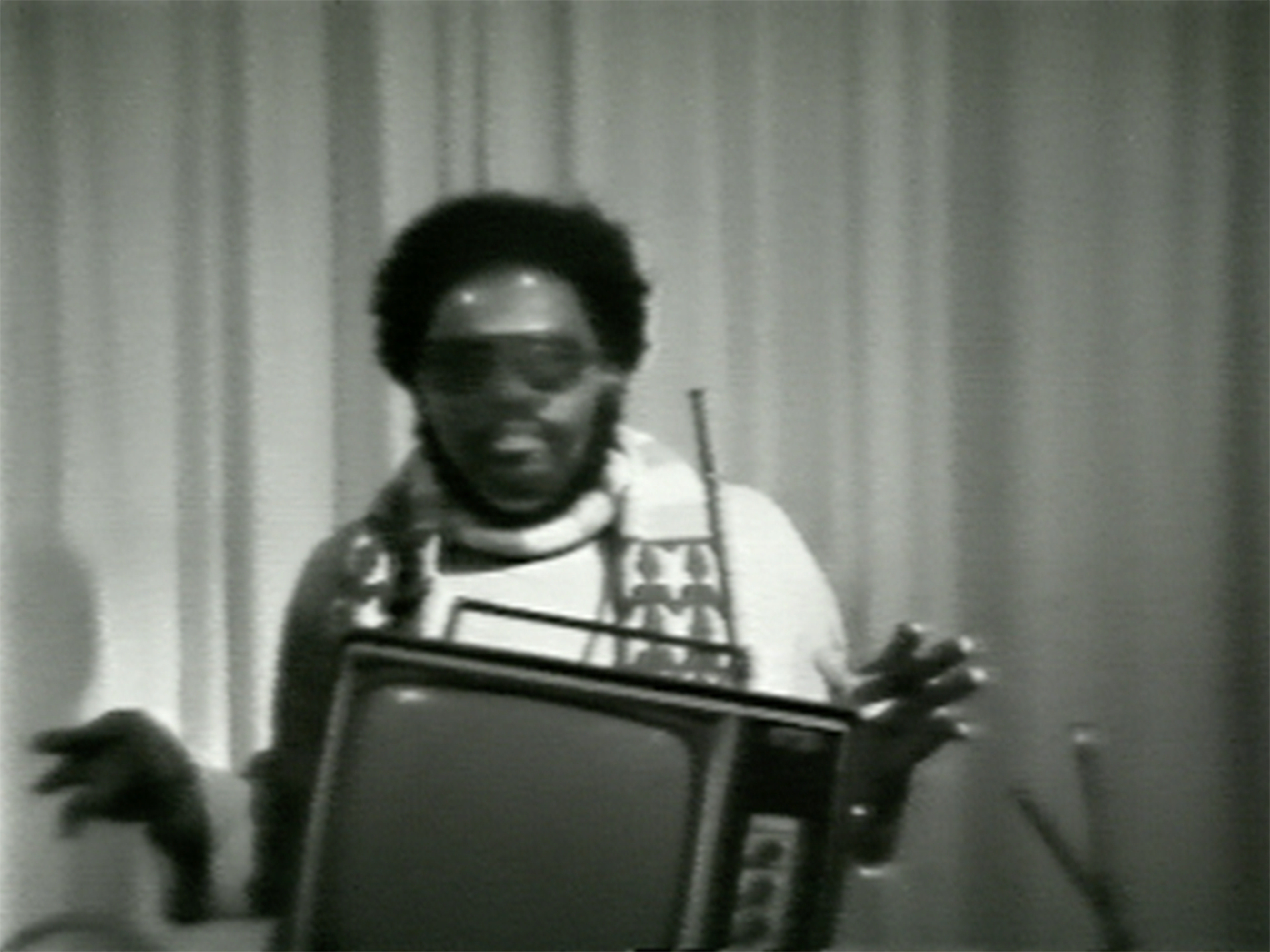Ulysses Jenkins
Ulysses Jenkins (b. 1946, Los Angeles, CA) is a pioneering video and multimedia artist who has had a profound influence on contemporary art for more than fifty years. Using archival footage, photographs, image processing, and elegiac soundtracks, his practice pulls together various strands of thought to interrogate questions of race and gender as they relate to ritual, history, and the power of the state. Between 1970 and 1972, Jenkins worked for the Los Angeles County Probation Department as a counselor for psychiatric non-delinquent youth. He also collaborated with gang-intervention programs in San Francisco to teach video art to young people.
At Otis Art Institute, Jenkins studied under Gene Youngblood, Charles White, Chris Burden, and Betye Saar at Otis Art Institute, receiving his master of fine arts degree in intermedia-video and performance art in 1979. He has collaborated with Kerry James Marshall, David Hammons, Maren Hassinger, and Senga Nengudi. His videos have been exhibited at the Whitney Museum of American Art, Getty Center, Studio Museum in Harlem, and Armory Center for the Arts. The first major retrospective of his work, “Ulysses Jenkins: Without Your Interpretation (2021-2022),” was exhibited at the Institute of Contemporary Art, University of Pennsylvania in fall 2021, and opens at the Hammer Museum on February 6, 2022. He lives and works in Los Angeles, California.

Mass of Images, Ulysses Jenkins, USA, digital, 4 min, 1978
Mass of Images engages elements of performance and video art to address myriad racial stereotypes of Black Americans in the media. Using blurred black-and-white film accompanied by a low humming sound, Jenkins employed exaggerated staging to mirror the ridiculousness and prevalence of stereotypical images. Blatantly racist images, such as actors in blackface, fill the screen, accompanied by the declaration in voice-over: “You're just a mass of images you've gotten to know, from years and years of TV shows.” Jenkins’ juxtaposition of this unfortunately valid statement with racist imagery draws attention to the media’s role in perpetuating bias and also questions the future impact of media imagery on Black American identity.
–Hammer Museum

King David, Ulysses Jenkins, USA, digital, 17 min, 1978
Ulysses Jenkins records David Hammons at a decisive moment in the artist’s development, just prior to his move from Los Angeles to New York. Part interview, part video performance, Hammons, in conversation with fellow artist LaMonte Westmoreland, considers Los Angeles’ Black artist community, the legacy of the Watts Rebellion, and his own artistic strategies.
–Electronic Arts Intermix
Co-presented with Electronic Arts Intermix (EAI), New York and Three Fold. Image credits: all artworks, stills, and portraits courtesy of the artist © Ulysses Jenkins and Electronic Arts Intermix (EAI), New York. Special thanks to Karl McCool and Hannah Kay.
View next: L. Franklin Gilliam, as part of Media City Film Festival: Spotlight Series